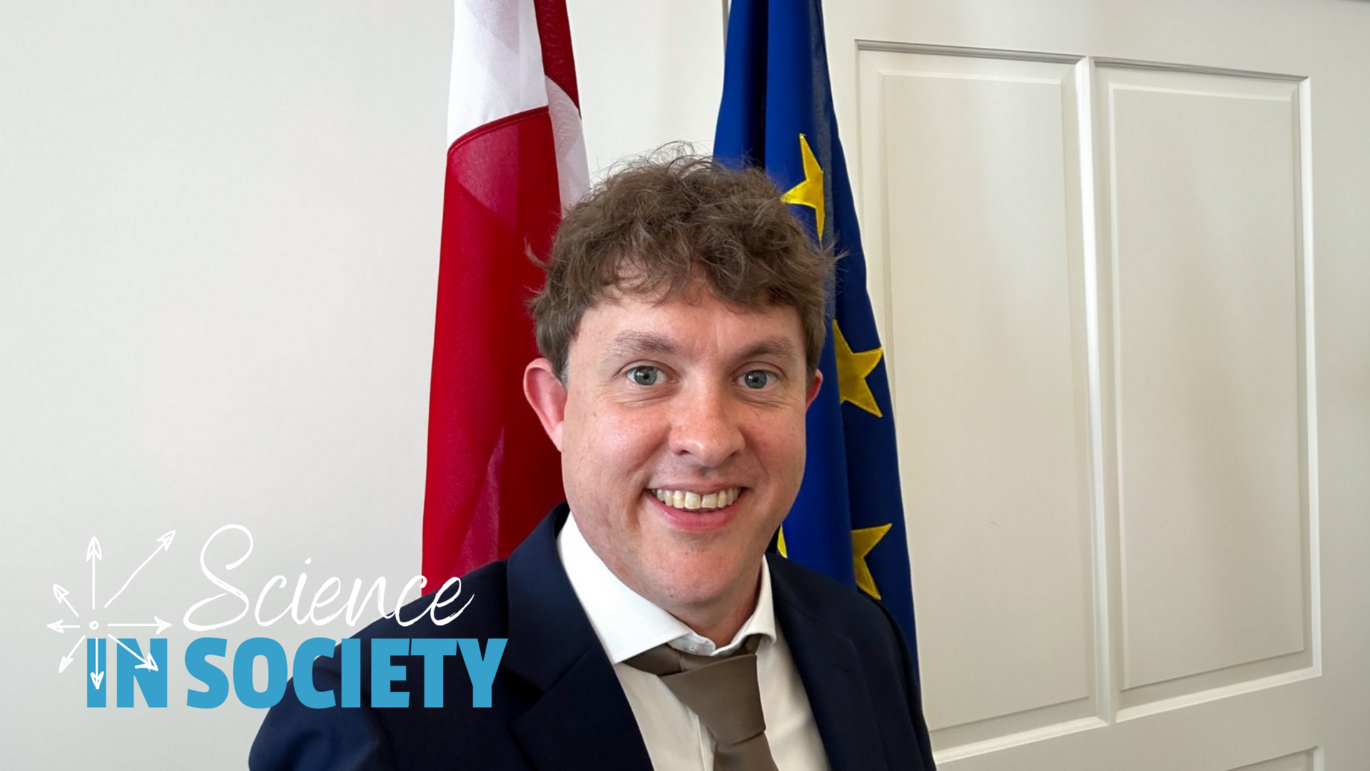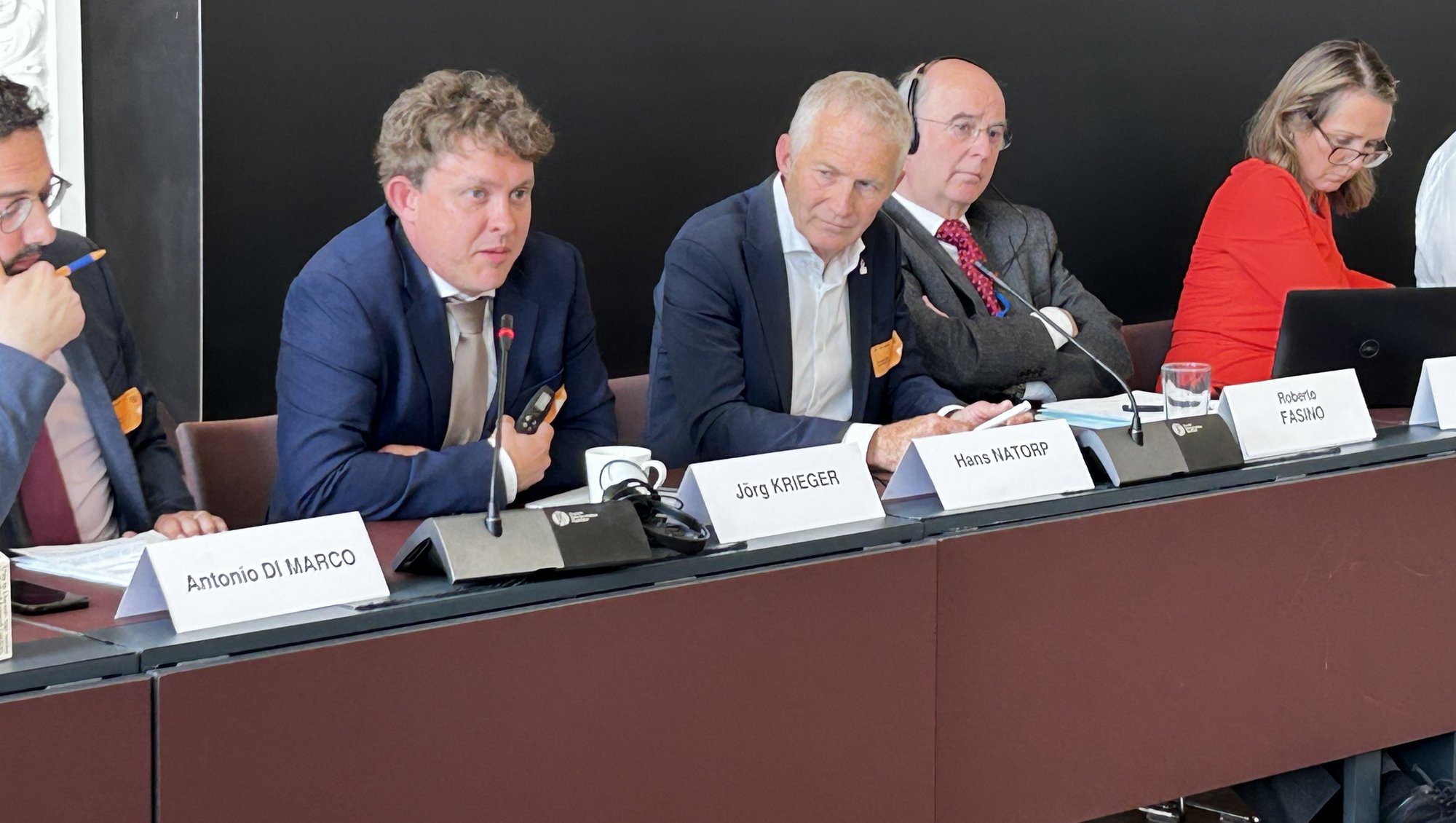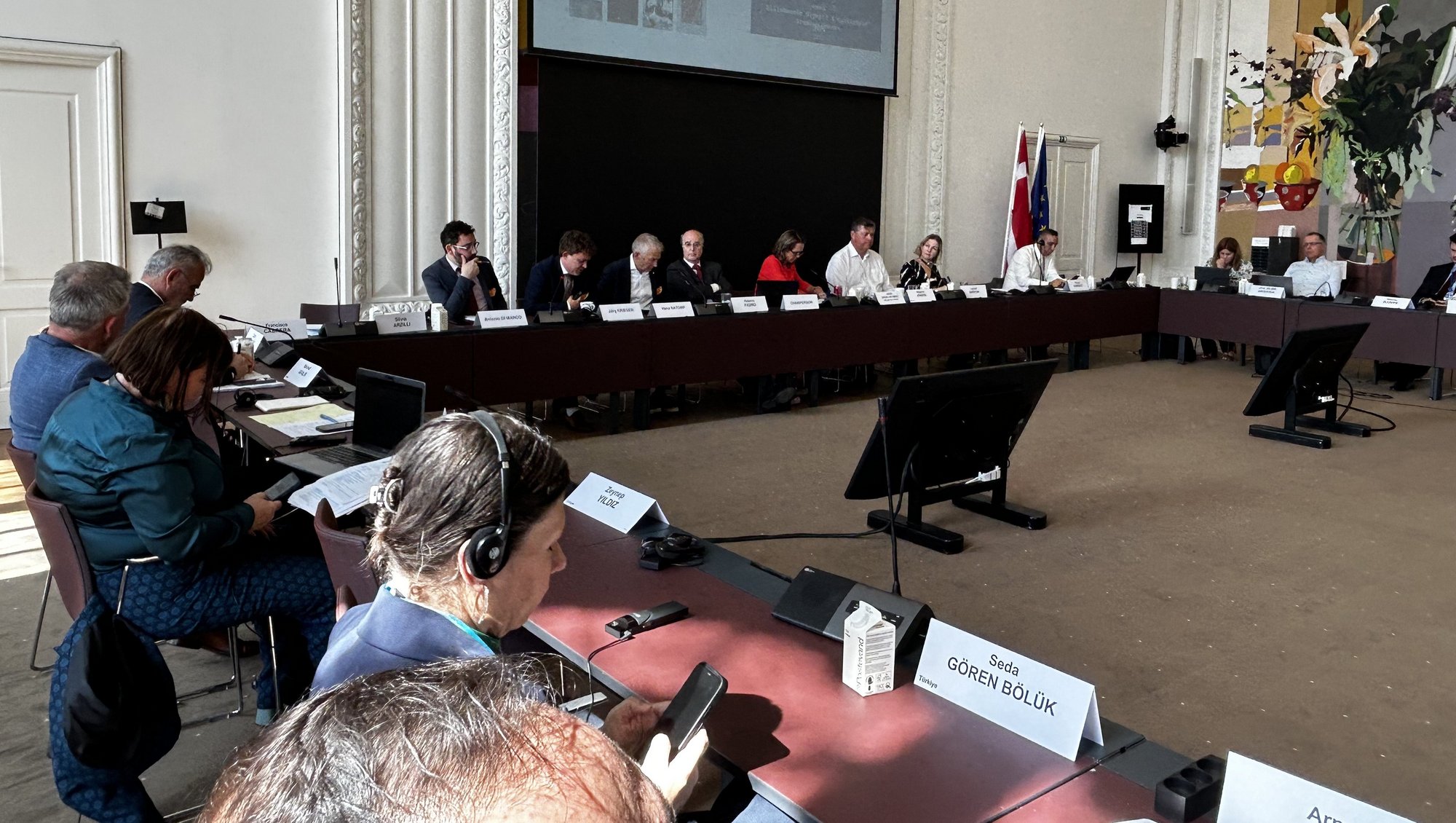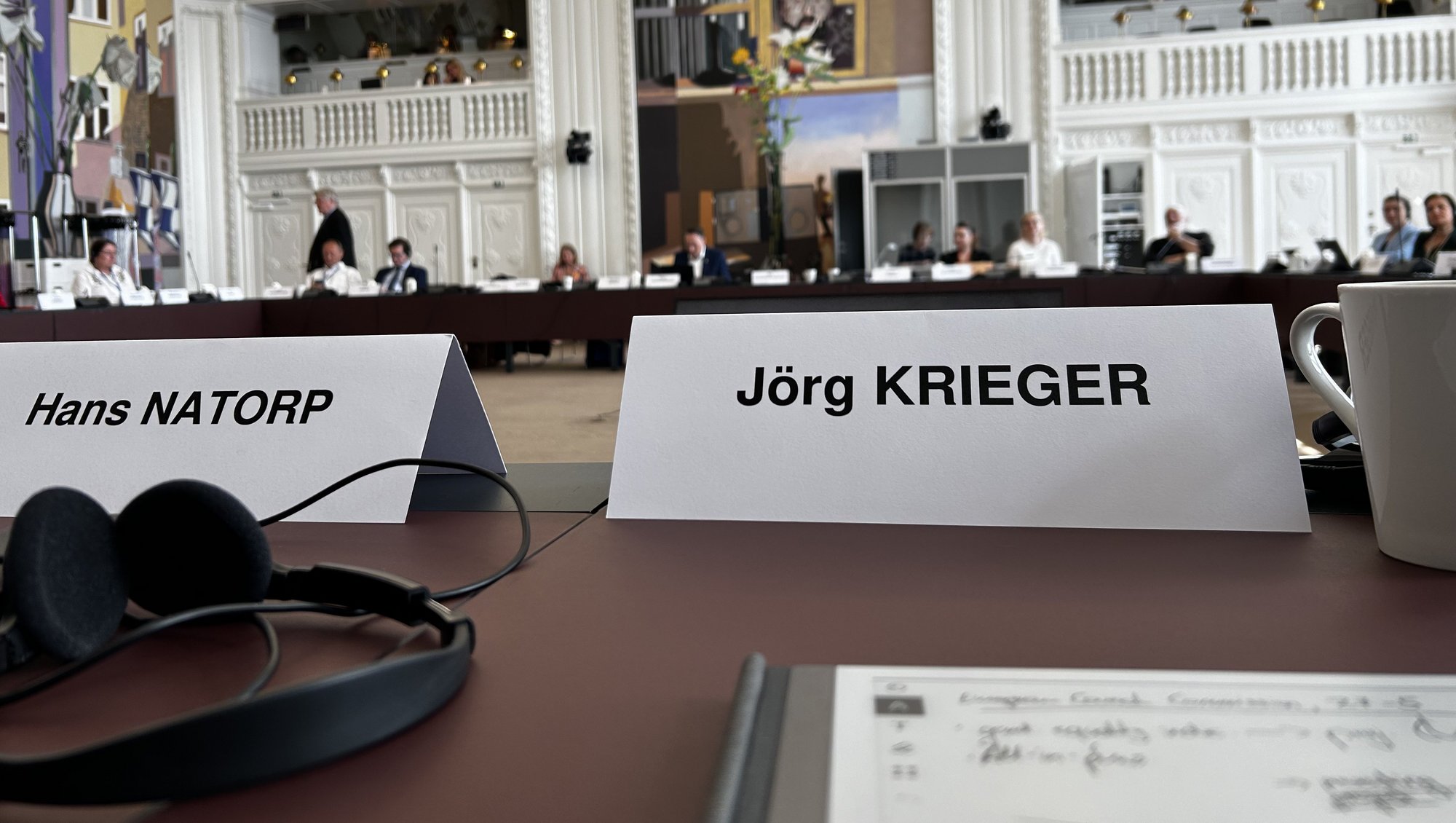Research on the agenda: "It's important that we raise our voices"
"It is important that we are available when our expertise is demanded." This is what Jörg Krieger said after being invited to present his research in front of the Council of Europe, several European Ministers of Culture, and a large group of European parliamentarians.

Science in society
The University Act requires that researchers, alongside their research and teaching, engage in disseminating their work through so-called knowledge exchange or research-based communication.
“Science in society” is a series of articles about Health researchers who apply their expertise in society in ways that go beyond traditional research communication and expert commentary.
"It was a bit overwhelming," Jörg Krieger admits a few days after the event, continuing: “I was actually a bit unsure whether it made sense for me to participate, but my colleagues assured me that this was a significant opportunity both for me and Aarhus University. No other academics from Denmark were invited, and it generally happens quite rarely that one gets the chance to be heard in such a significant political forum."
Jörg Krieger is a sports historian, and he was recently invited to speak before a Council of Europe committee in the Parliament Hall at Christiansborg. Here, he was to debate the relationship between sports and politics with as part of a two-day meeting focusing on culture, science, education, and media.
"Some council members must have been aware of my research on sports, politics, and neutrality. The politicization of sports is a 'hot topic' these days, and with a busy sports summer just around the corner, it was an excellent opportunity for me to participate and bring my research to the political agenda," says Jörg Krieger.
An unexpected invitation
"It is always tricky when we as researchers step out of our comfort zone and engage with a different target group" the lecturer admits and elaborates:
"I prepared my talk as I would have prepared an academic presentation. Fortunately, I had the opportunity to engage with the colleagues in my research group prior to my talk and they supported me in making the presentation more accessible. In this way, I was able to ensure that my main messages were clear and relevant to the politicians. It's about meeting the audience at eye level," he says.
The goal of Jörg Krieger's presentation was to create historical awareness about the political dimensions of sports leading up to a busy sports summer.
"The idea that sports should be politically neutral actually came much later than the origin of sports. Historically, sports have been permeated with political interests, and when today we maintain political symbols in sports like flags, national anthems, etc., while claiming that sports have nothing to do with politics, it is enormously hypocritical," he says. “Thus, I provoked the politicians to push for an open embracing of the relationship between sport and politics, or to consider removing political symbolism from international sport altogether.”
This message was well received by those present in the Parliament Hall. "Several participants approached me afterwards and said it was a brave and interesting thought experiment to make. Obviously, they had concerns about the practical implementation, but I had expected such resistance. Generally, though, people seemed very receptive to my research on the political dimension of sports," says Jörg Krieger.
"It's important that we dare to step up"
"A speech at the Council of Europe is not something that directly translates into quantifiable research output or benefit for the university such as publications or the acquisition of external funding. But if we want our research to be relevant to both decision-makers and the public, I believe it's important to seize such opportunities when they arise," he says, continuing:
"We live in a time marked by misinformation, fake news, and political division, and therefore the need to contribute with research-based insights to political debates is very high. But it's a balancing act because it's not a central part of our job to enaage with politicians and decision-makers if we are provided with the possibility," he says.
Dean Anne-Mette Hvas recently praised, in a column in the faculty's internal newsletter, the researchers who give back to society by engaging in conversations and interviews and spend energy communicating their research to a broad public. Jörg Krieger agrees with this praise.
"I think as researchers we often have an ambivalent relationship to media appearances. On one hand, we want to inform how our work creates value for society. But on the other hand, many of us might be uncomfortable giving up control over the communication when we speak through the filter that the journalist or format imposes on the story," he says.
Contact
Associate professor Jörg Krieger
Aarhus University, Department of Public Health
Phone: 93 52 21 87
Email: krieger@ph.au.dk


